Thief Hunting Thief in Nigeria’s War on Internet Fraud
A (US) government report on internet crime reveals that 61 percent of the traced criminals resided in the United States, followed by the United Kingdom at 16 percent. Nigeria-based criminals were next at 6 percent. (Eric Rosenberg, Hearst Newspapers, 2006)
The above comment was made about 12 years ago when internet fraud was just taking root in the Nigerian social vibes. Today, it is one of the country’s biggest export of bad image and ironically, a huge driver of foreign cash flow into the Nigerian economy.
While the entertainment and hospitality industries owe a great deal of their recent growth to the embarrassing surge in internet fraud, international outcry to stop this nefarious act originating from Nigeria is soaring. Only this time, the government is serious and out with force from Lagos to Abuja indiscriminately arresting young men leading luxurious lifestyle with less regard to their innocence or otherwise.
However, internet fraud is merely the country’s primary problem, besides, the conventional way to fight a surge, is to find the root cause, which in this is case is the Nigerian government – the very individuals leading the assault on cyber criminals.
The government is more guilty of stealing than any internet fraudster one can ever imagine. If “Yahoo Boys” (colloquial for internet fraudsters) should be arrested for defrauding since the beginning of the millennium, the Nigerian government should be charged for defrauding, mismanagement and misappropriation since 1960.
A fair approach will be to start by auditing the federal and state governments. Every administration since the days of military dictatorship should give account of all revenue generated and spent. Past and present public office holders should declare their assets and tax history. If the government would not do this or eventually come out unstained, then the fight against fraud must start in the state houses of assembly, office of state governors, and eventually the Presidential Villa.
There is no morality in prosecuting one thief and ignoring the other; everybody should be subjected to the same litmus test.
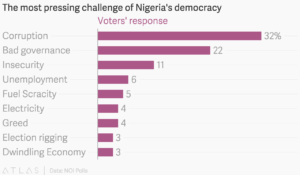
Fraud is theft, administrative fraud is bigger theft. If the Nigerian government is doing nothing meaningful to build good environment for job creation, security and improvement in the standard of living of its own people, then this course of battle is an absolute moral sham.
Eventually, internet fraud must be condemned and alienated, but before then, let the Nigerian government clean its own closet before finding skeletons elsewhere.
Africa’s Bloody Hands in Jerusalem
Surely, the African nations in attendance (US embassy opening in Jerusalem) know that they cannot endorse one crime and condemn the other – all in the same breath. – Azad Essa (Middle-Eastern Journalist)
One of the many reasons an average individual is not often interested in international relations is mostly because of the inhumane trade of morality and innocent lives for power among actors in the international system. This is somewhat evident in light of the recent events in Gaza and the West Bank where more than 50 people have died and hundreds injured. More evidently, in the shameful support of some African countries for Israel’s assault on Palestinians by attending the opening ceremony in Jerusalem.
The question here is not whether Jerusalem is the eternal capital of Israel or not – which of course is not Africa’s question to answer – the problem is why are African leaders leaving all the problems engulfing their countries behind, and diving into a territory that does not warrant their participation?
How does choosing sides between two warring factions (Israel and Palestine) reduce Africa’s foreign debt? Alternatively, will heaven fall if they join other countries in stressing a diplomatic solution to the dispute over Jerusalem? How does this put food on the tables of millions of poor African families? We have only deep our hands into the blood and chaos in the Middle-East while leaving our own backyard unkept.
Jerusalem is not Africa’s problem to solve, fighting poverty and insecurity on the other hand is a good way to start.
The governments of Angola, Cameroon, Congo Republic, the Democratic Republic of Congo, Ivory Coast, Ethiopia, Kenya, Nigeria, Rwanda, South Sudan, Tanzania and Zambia should be ashamed of themselves. All of whom with millions of people languishing in poverty and insecurity of all categories.
Albeit, out of these twelve countries, Rwanda, Cameroon and South Sudan had earlier abstained in the December 2017 vote on the same issue while the remaining nine voted against the US for moving the embassy from Tel Aviv to Jerusalem. So, why the sudden change in policy if not to swing the way of power and money?
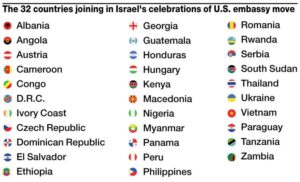
One thing is however certain, it would be interesting to see how the participatory African countries would deal with a consequential isolation in the United Nations and other international treaties as only 33 out of 192 UN member-states (excluding Israel) attended the ceremony last week.
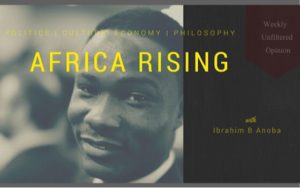
Whenever Africa is recognized as the next frontier of the global economy, they actually mean millions of small and enormous events working to create an anticipated new beginning. That is why there has never been an urgent need to understand the continent in light of its distinct features like now. Here is the platform you will find unfiltered and frank opinions on Africa with African Political Economy Pundit & ALOD Executive Director, Ibrahim B Anoba.


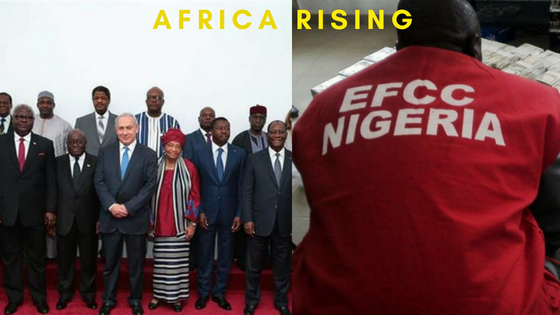
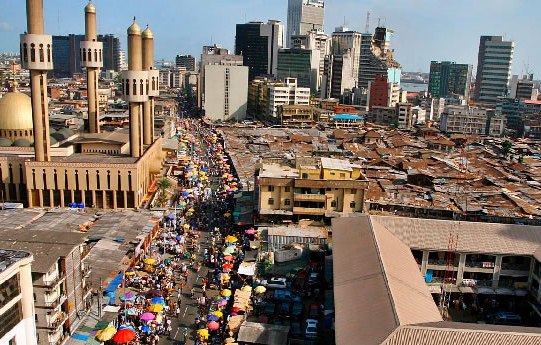
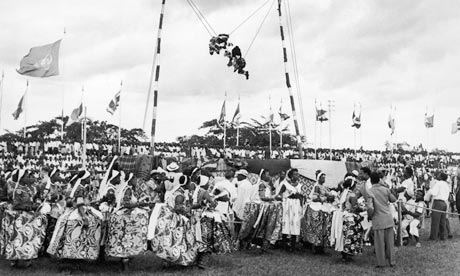


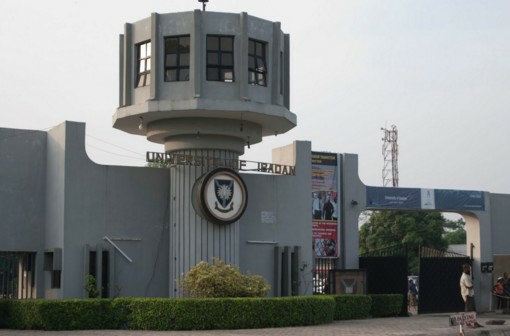
Recent Comments